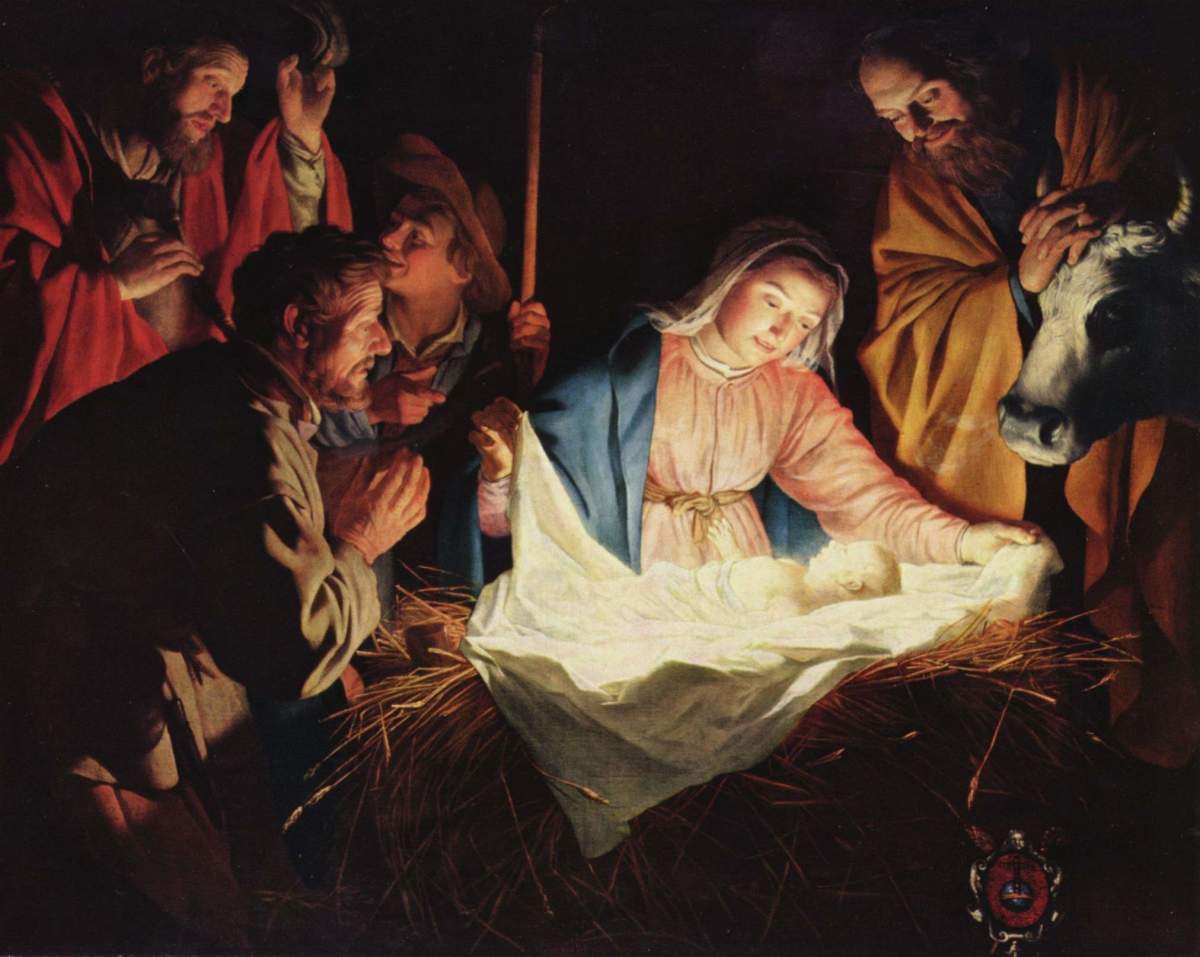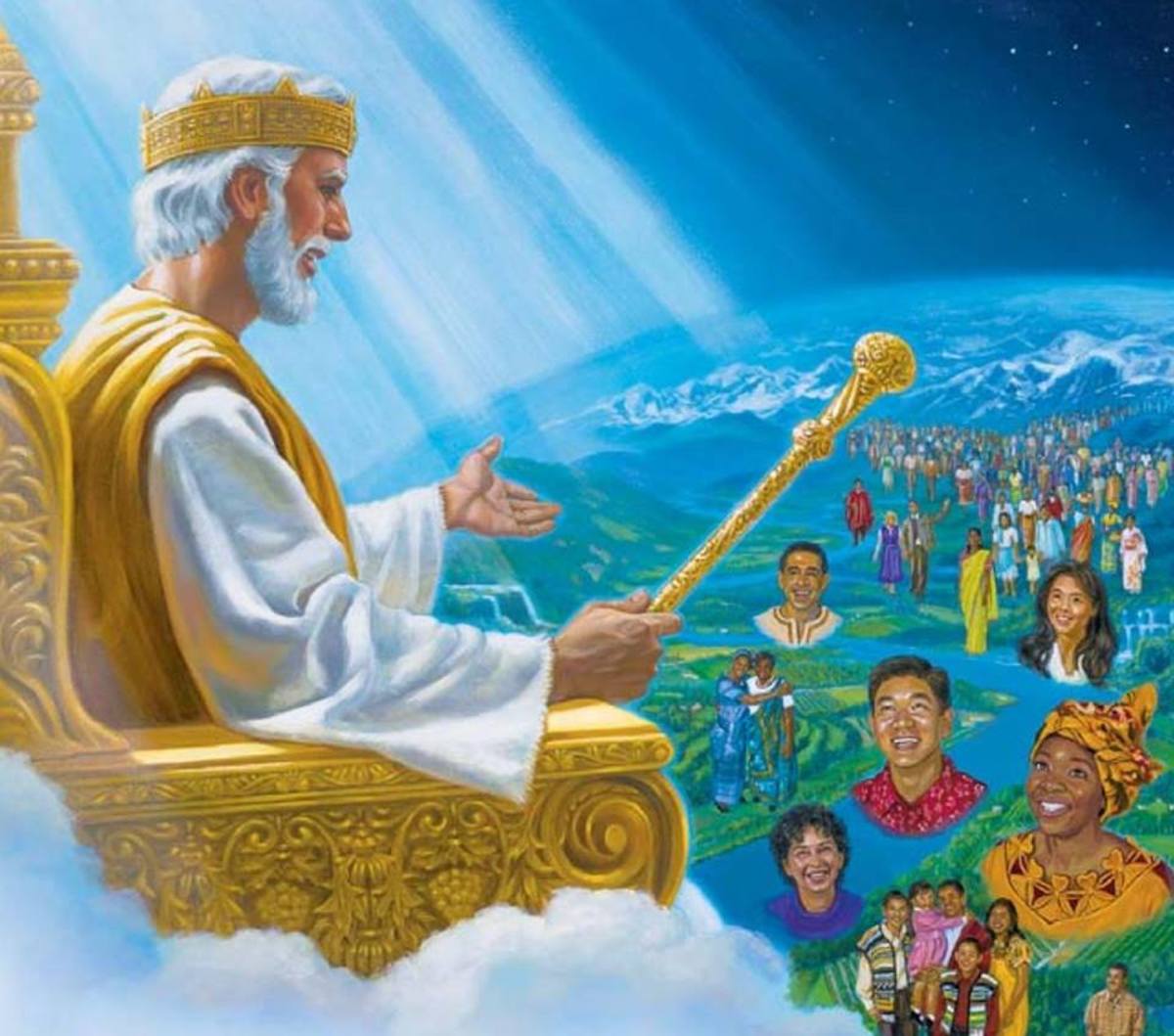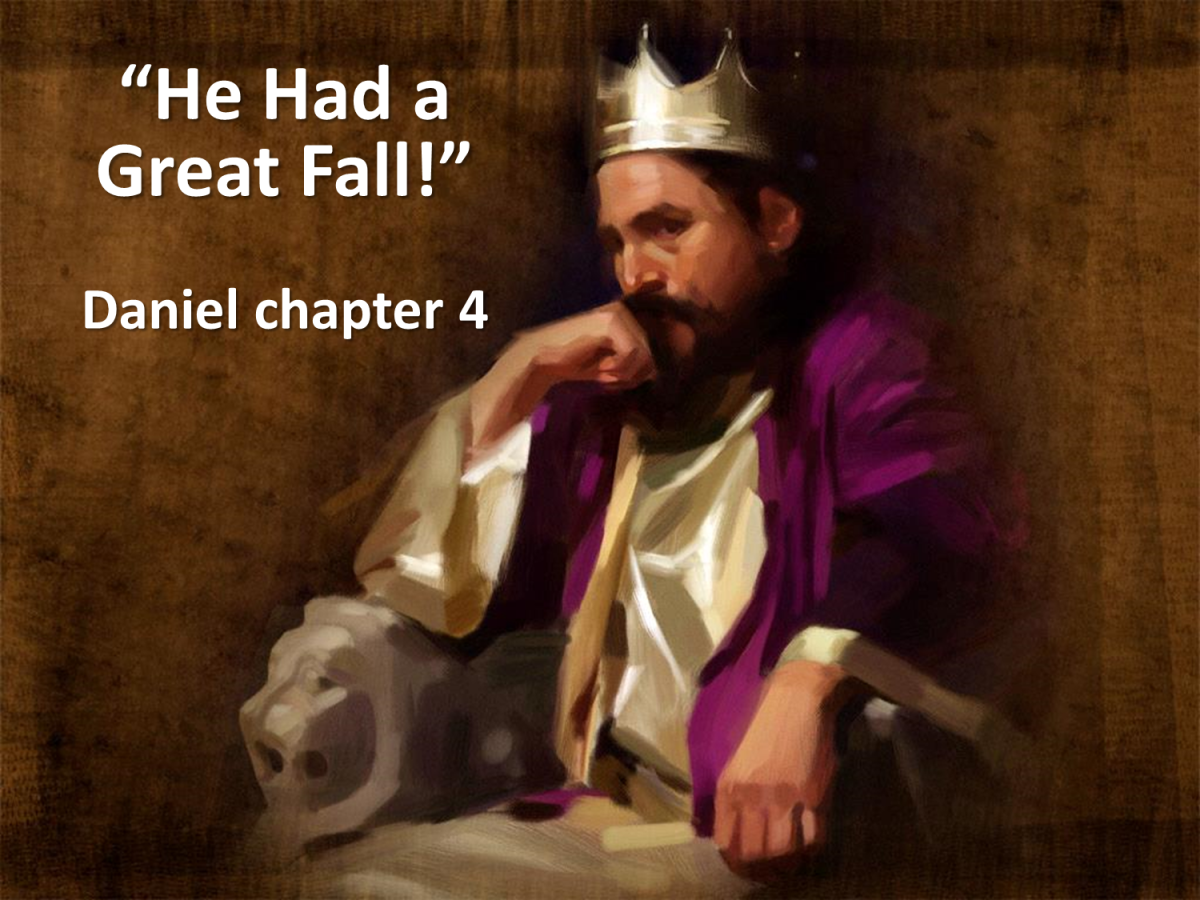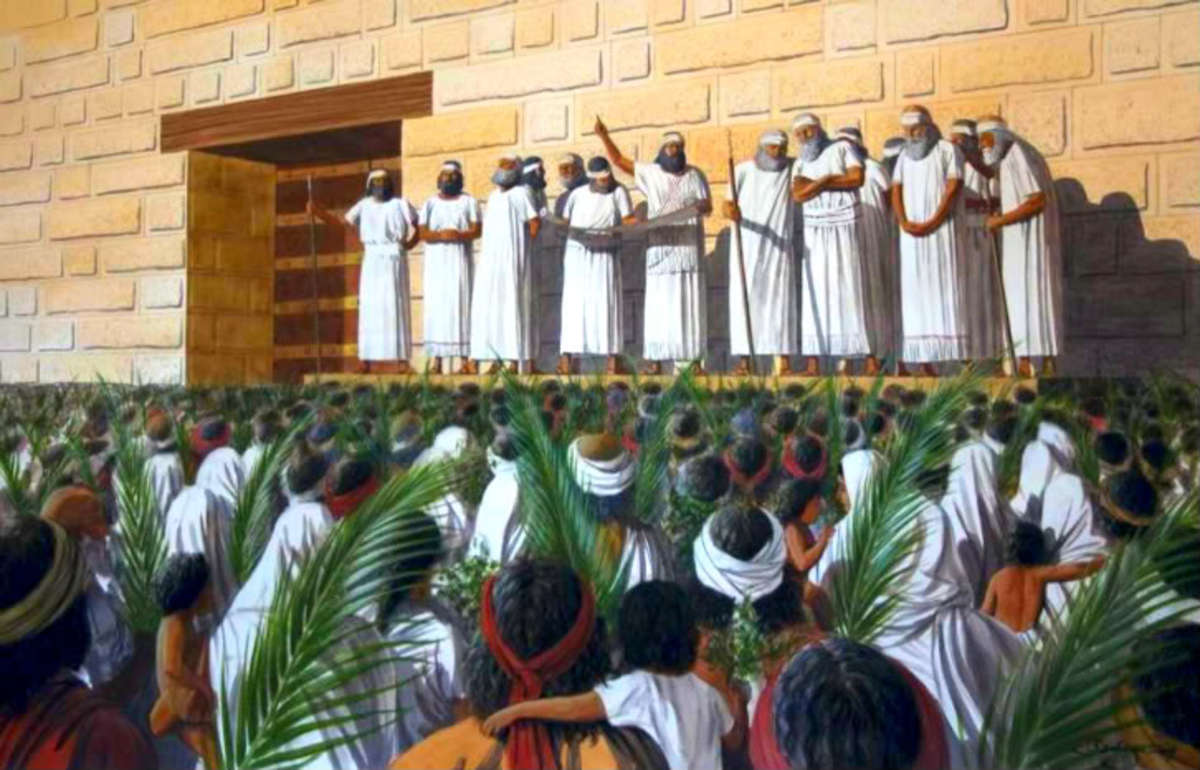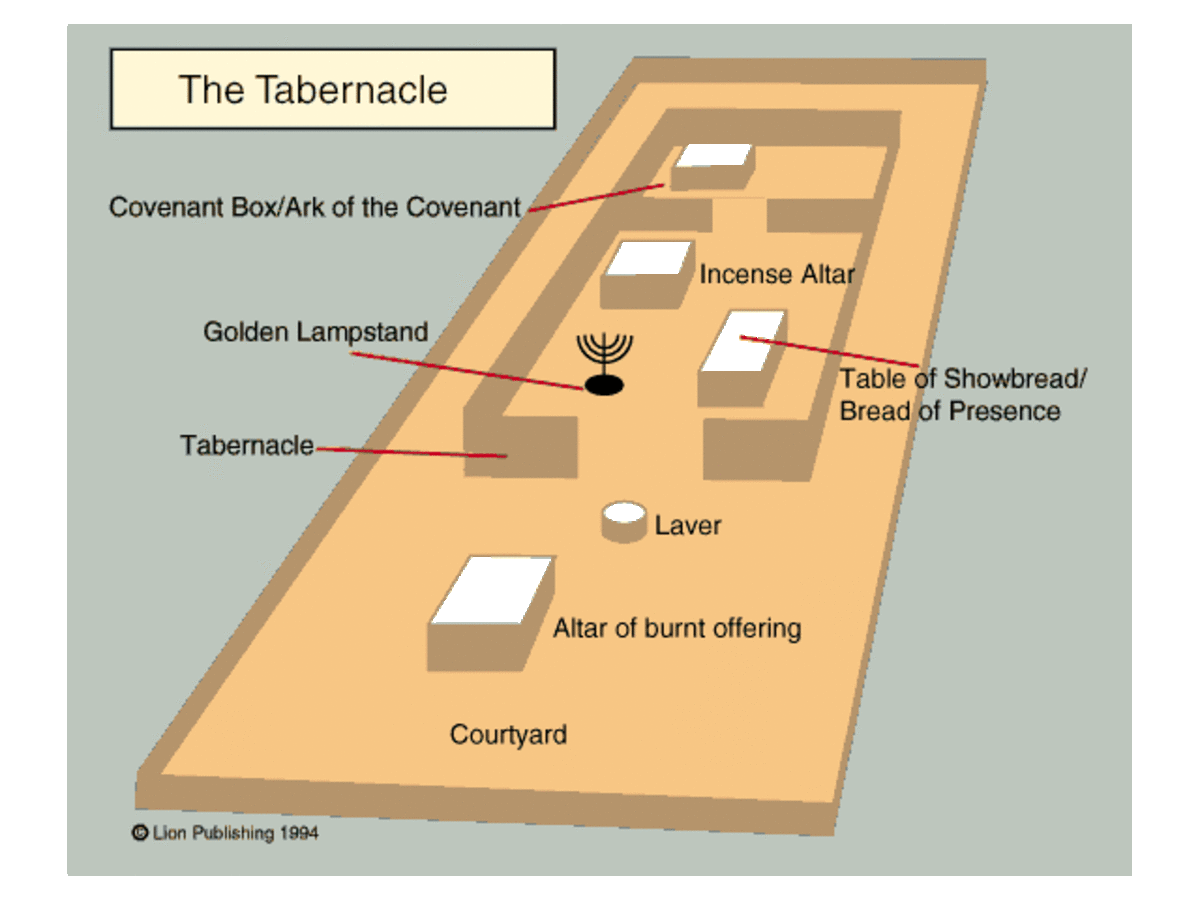Missions No Matter the Circumstances - Daniel 1, 2
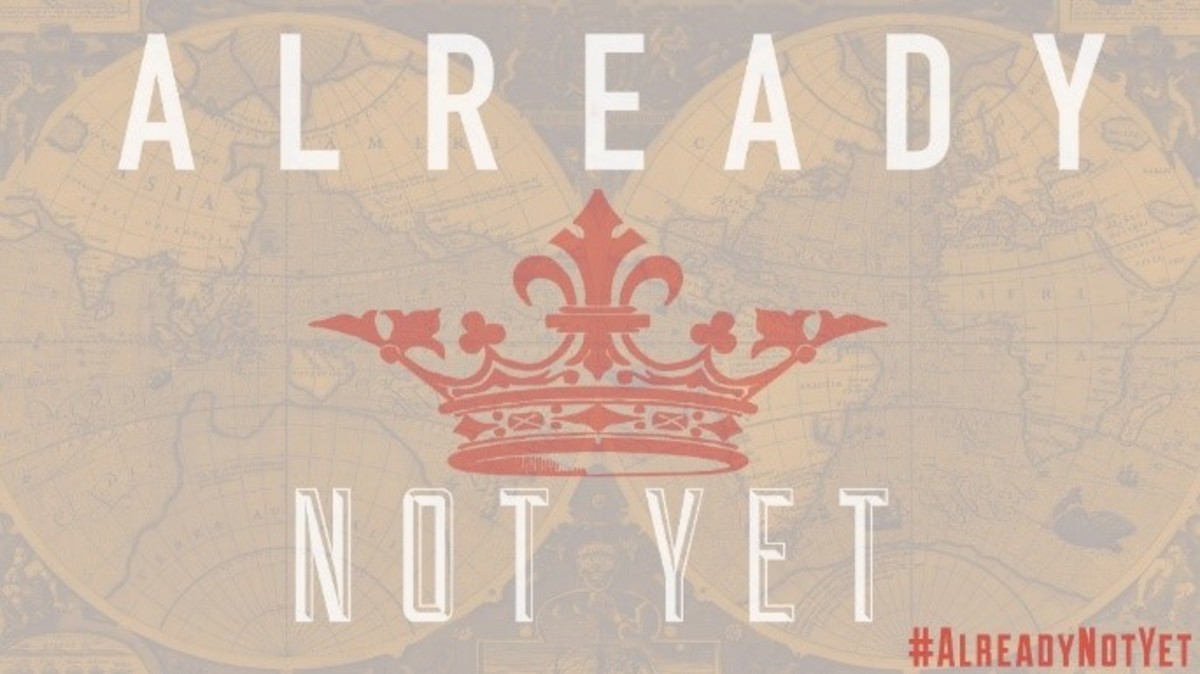
Daniel
Division #1: Daniel, Hananiah, Mishael & Azariah are enslaved.
Daniel 1:1-7
1 In the third year of the reign of Jehoiakim king of Judah, Nebuchadnezzar king of Babylon came to Jerusalem and besieged it. 2 And the Lord gave Jehoiakim king of Judah into his hand, with some of the vessels of the house of God. And he brought them to the land of Shinar, to the house of his god, and placed the vessels in the treasury of his god. 3 Then the king commanded Ashpenaz, his chief eunuch, to bring some of the people of Israel, both of the royal family and of the nobility, 4 youths without blemish, of good appearance and skillful in all wisdom, endowed with knowledge, understanding learning, and competent to stand in the king's palace, and to teach them the literature and language of the Chaldeans. 5 The king assigned them a daily portion of the food that the king ate, and of the wine that he drank. They were to be educated for three years, and at the end of that time they were to stand before the king. 6 Among these were Daniel, Hananiah, Mishael, and Azariah of the tribe of Judah. 7 And the chief of the eunuchs gave them names: Daniel he called Belteshazzar, Hananiah he called Shadrach, Mishael he called Meshach, and Azariah he called Abednego.
As we begin to study the book of Daniel, there are a few things we need to know concerning the history of the Jews. Understanding this will give us a better understanding of what was going on in the world at this time. After the reign of Solomon, the kingdom of Israel split into two separate kingdoms, one in the north at Samaria called the “Northern Kingdom” or “Israel”, and one in the south at Jerusalem called the “Southern Kingdom” or “Judah”. The Southern Kingdom was comprised of the tribes of Judah and Benjamin, and the Northern Kingdom was made up of the remaining ten Israelite tribes. The Northern Kingdom was taken over by the Assyrians in 721 BC and the date for this first round of captivity is approximately 605 BC. (Approx. 116 years later)
It is important to understand biblical history here, because three things were happening at roughly the same time, and three different books of the bible (Ezekiel, Daniel, and Jeremiah) were written around this same time too. Knowing this, it helps us get a clearer picture of what the authors were trying to convey to us in these three different books.
We start off in the book of Daniel with the reign of King Jehoikim coming to an end. He was the king of the Southern Kingdom of Judah, and by this time, the Southern Kingdom was in trouble. In 609 Assyria (who had control of the Northern Kingdom of Samaria) was waging war against Babylon for control of the entire region. Due to the political climate in the region, Egypt thought it would be in their best interests to enter the war on the side of Assyria, to prevent Babylon from taking control of the entire area. Egypt sent troops to a city called Carchemesh to assist the Assyrians, and Josiah, the king of Judah, thought this would be the perfect opportunity for the Southern Kingdom to ambush the Egyptians as they moved north to the battle, and thus extend Jerusalem’s borders all the way to Egypt. This was a VERY bad idea, and the army of Judah was destroyed in the Megiddo valley. King Josiah was killed, and Judah became a territory that belonged to Egypt. Egypt set up Jehoiakim to become the king of Judah, but as a vassal state of Egypt, so his position was more “in name only” and was a puppet ruler.
In 605 BC, a young Babylonian prince named Nebuchadnezzar moved his Babylonian army into Carchemesh and beat both the Egyptian and Assyrian armies, and with that Judah became, by default, a Babylonian state. This victory propelled Nebuchadnezzar to be the Babylonian king. In 605 Nebuchadnezzar deported some Jewish young men to Babylon, but left Jerusalem as a functional city with its own government. When Jewish king Jehoiachin staged an uprising against Babylon in March of 596, King Nebuchadnezzar brought the full might of the Babylonian army onto Judah and took 10,000 captives (Ezekiel was one of them) back to Babylon. In 587 BC Judah rose up again against Babylon, and one year later Nebuchadnezzar destroyed the entire city, and along with the temple. Jerusalem was in ruins. It is during this time that the prophet Jeremiah wrote the book Jeremiah.
Daniel was one of the first captives taken to Babylon from Jerusalem in 605 BC. Ezekiel, who was a priest and about 3 years older than Daniel, stayed behind along with Jeremiah who was considerably older. Ezekiel would be among the 10,000 captives taken to Babylon in 597BC, and Jeremiah would remain in Jerusalem for his entire life. Verses one and two of this chapter cover this, as well as give us the additional information that Nebuchadnezzar stole things from the temple and brought them back and put them in the pagan temples in Babylon.
The third verse in Daniel Chapter One tells us about this first group of young men from the Jewish royal court who have been abducted and taken to Babylon. Nebuchadnezzar deported a number of young men from Jerusalem and to train them as Babylonians. His policy was to incorporate conquered nationalities into his government because he could then train them as Babylonians, and send them back to where they came from as “native” peoples, but Babylonian rulers.
Nebuchadnezzar assigns his topmost manager named Ashpenaz to take over training these young men in the ways of Babylonian sciences, math, art, politics and culture. This was for certain a form of brainwashing, where the idea was that if these kids were brought in early enough, their bloodline would be that of a conquered people, but their identity would be Babylonian. These young men were given Babylonian names, dressed in Babylonian clothes, taught Babylonian songs, introduced to Babylonian women, all in the name of “education” but it was more “reprogramming”.
Scripture does not tell us how many young men were brought from Jerusalem to Babylon in this first abduction, but we do know it was a fairly small number and they were young men, probably between 12 and 17 years old. The Bible tells us they were the pick of the litter, so Nebuchadnezzar may have just gone to the Gifted and Talented class at the palace and took them. Verse 3 and 4 make it clear that the eunuch tasked with picked these young men was to make sure he brought back boys who would be able to learn all that they wanted to teach them, and also would have the social skills to put their indoctrination into action when they were released back to their home country to govern.
The following verse (5) tells us Nebuchadnezzar’s plan. He wanted these young men to spend three years eating from the King’s table, enjoying all that nobility had to offer, all the while getting the best Babylonian education money could buy. It was a three-year course in the occult whose graduates were sent to appear in the King’s court, as a testament to the indoctrination and education system of the Babylonians.
The final two verses in this division give us the main character’s names, both or Hebrew names, and the names that were given them by the eunuchs. Changing names was an important part of this system Nebuchadnezzar put in place. To have the power to change someone’s name, meaning you had power over them. Think about it, your name is your identity, and if someone can come along and just change it, they have real influence over you, and how others perceive you. If we look at other places in the Bible, we see God changing people’s names. While the main persecutor of the church “Saul of Tarsus, was on his way to Damascus to arrest some Christians, Acts 9 details that Jesus met him on the road and changed his name to Paul, and in Genesis 17, God met with a foreigner from Ur, and changed his name from Abram to Abraham. We also see this in Acts 4 when the apostles changed Joseph’s name to Barnabas. Nebuchadnezzar was doing this too, and to show his authority over the captives he held, he had the eunuchs change their names. Their original names had meaning in the Hebrew, their names pointed to attributes of God. Nebuchadnezzar and the Babylonians knew that if they held on to anything from their original culture, the indoctrination would not reach its full potential. So, he took their given Hebrew names with their Godly definitions and changed them to show honor to the gods of Babylon.
See the chart to see the meanings of their names in Hebrew and in Babylonian.
Hebrew Name − Hebrew Meaning - Babylonian Name - Babylonian meaning
Daniel - God has judged - Belteshazzar - Lady, protect the king
Hananiah - Yahweh has been gracious - Shadrach - I am fearful of a god
Mishael - Who is what God is - Meshach - I am humbled before my god
Azariah - Yahweh has helped - Abednego - Servant of the god “nebo”
1: Sometimes God uses our captivity or circumstances beyond our control to further His plan and purpose for a lost world.
Application Question: Does my life set me apart from others, so much so that I stand out as an exceptional child of the one true King?
Division #2: Daniel, Hananiah, Mishael & Azariah honor their dietary laws.
Daniel 1:8-21
8 But Daniel resolved not to defile himself with the royal food and wine, and he asked the chief official for permission not to defile himself this way. 9 Now God had caused the official to show favor and compassion to Daniel, 10 but the official told Daniel, “I am afraid of my lord the king, who has assigned yourfood and drink. Why should he see you looking worse than the other young men your age? The king would then have my head because of you.” 11 Daniel then said to the guard whom the chief official had appointed over Daniel, Hananiah, Mishael and Azariah, 12 “Please test your servants for ten days: Give us nothing but vegetables to eat and water to drink. 13 Then compare our appearance with that of the young men who eat the royal food, and treat your servants in accordance with what you see.” 14 So he agreed to this and tested them for ten days. 15 At the end of the ten days they looked healthier and better nourished than any of the young men who ate the royal food. 16 So the guard took away their choice food and the wine they were to drink and gave them vegetables instead. 17 To these four young men God gave knowledge and understanding of all kinds of literature and learning. And Daniel could understand visions and dreams of all kinds. 18 At the end of the time set by the king to bring them into his service, the chief official presented them to Nebuchadnezzar. 19 The king talked with them, and he found none equal to Daniel, Hananiah, Mishael and Azariah; so they entered the king’s service. 20 In every matter of wisdom and understanding about which the king questioned them, he found them ten times better than all the magicians and enchanters in his whole kingdom. 21 And Daniel remained there until the first year of King Cyrus.
In the previous verses in this chapter, we see that Nebuchadnezzar had gone to extreme lengths to provide for these captives. Food from the royal table, most certainly rooms in the palace or at least in the palace complex, these captives lived in the lap of luxury, but they were still captives. They were still children who had been abducted and taken from their families, homes, and friends. They had been taken to a strange place where 24 hours a day, they were bombarded with influences designed to make them forget who they were, and make them into something Babylon wanted them to be.
In the previous chapters, these boys had distinguished themselves to such an extent in Jerusalem that they had been chosen by Ashpenaz to come back to Babylon for their indoctrination. They now distinguish themselves from other captives by staying true to their own rules concerning food.
When we look at the Hebrew dietary laws, Exodus 34:15 clearly specifies that God’s people were not allowed to eat food that had been sacrificed to pagan gods and it was very likely that the meat of animals served on the king’s table was in fact that. It is the first example we see of how Daniel will operate while in captivity. He did not go on a hunger strike, he did not pitch a fit, and he merely requested politely that he and his friends eat a vegetarian diet. Also, in these verses, it seems that there are two different people in this conversation with Daniel, there is the official with whom God had given Daniel a good rapport, and there was also a guard appointed over him. The first conversation in verse ten is between Daniel and the official, and the second conversation in verse eleven is with Daniel and his guard. Scripture gives us the dialog between Daniel and the official, and it is a very real and open conversation. God cause Daniel to find favor with the official, but the official is not willing to die for Daniel. The official responds very honestly. “I like you, Daniel, but when you guys start looking weak and puny, the king will think I am not doing my job and he will have my head for it.” Then Daniel offers a compromise but this time to the guard, “Let’s just try it for ten days. If all is good, we can continue. If not, you can treat us like we have refused the food.” We do not know if the guard and the official were standing together, and maybe the official was letting the guard make the call, as a sort of plausible deniability on his part. If things went south, he could always blame the guard and say he had no knowledge of the vegetarian diet. Also notice that even in the ten day test, Daniel does not say that if he looks worse after ten days, he would then go back and eat the king’s food. Remember that in verse eight Daniel had determined that he would not defile himself. Daniel was trusting God with the outcome, all the while staying true to his faith, and being a shining example for the God of the Hebrews.
After ten days, Daniel, Hananiah, Mishael & Azariah actually looked better than the other men in the program, so they were allowed to continue on the diet of their choosing. This was a clear testament to their honoring God with such a small part of their lives. God honored their desire to keep His commands, and God used that to propel them to the highest ranks within the palace cadre. God gave them the ability to learn and retain information, to understand literature, comprehend and excel in different languages, so out of the cream of the crop of the captives from Jerusalem, they rose to the head of that class, truly the Crème de la crème, or “the best of the best of the best, SIR!”
After their three years of training, just as verse five promises, they are all presented one by one to King Nebuchadnezzar for him to personally access their education and their preparedness. It is highly likely that he received periodic updates as to their process. I am sure he already knew who the best of the best was. Much like a senior level manager is always on the lookout for lower level personnel who might be “management material”, Nebuchadnezzar probably already had a cheat sheet of sorts from the officials in charge of training, and was probably just waiting to hear and see what all the fuss might have been about regarding these four kids from Jerusalem.
It also bears pointing out that this would have been going on all over the palace. The Hebrew boys that were taken in 605BC would have only been a subset of all the captives there. There would have been multiple groups of captives in multiple stages of progression going through this indoctrination program. Nebuchadnezzar would have many of these meetings with new graduates from his program, but I would venture to guess he was looking forward to this one, and he was not left disappointed.
Think about it, young men from all over the known world at this time, appearing before this Babylonian king, and God’s Word tells us that Nebuchadnezzar found “no one equal to them”. Scripture goes on to tell us in verse 20 that in every matter King Nebuchadnezzar quizzed them on, they were ten times better than not only the other young men who had graduated from his program, they were ten times better than the handpicked guys that were in charge at that time. Think about that! It probably makes sense to us though, because the four young men who were sold out to honoring their God and keeping His commands, and that God is the one true God of the universe, of course, they were ten times better than the magicians and enchanters who made their living off of “sleight of hand” tricks and intentional misdirection. Cheap parlor tricks are always shown to be a sham when compared to what the one true God of Israel does through His people. 1 Samuel 2:30 says “….Those who honor me I will honor” and God is trustworthy to his promises.
2: When we stand firm in our obedience to God’s commands, He will always be faithful to His promises.
Application Question: When have I had an opportunity to stand firm on the convictions of the Holy Spirit? What processes can I put in place to always be firm in my convictions, no matter the consequence?
Division #3: Daniel tells and interprets King Nebuchadnezzar’s dream.
Daniel 2
17 Then Daniel returned to his house and explained the matter to his friends Hananiah, Mishael and Azariah. 18 He urged them to plead for mercy from the God of heaven concerning this mystery, so that he and his friends might not be executed with the rest of the wise men of Babylon. 19 During the night the mystery was revealed to Daniel in a vision………
27 Daniel replied, “No wise man, enchanter, magician or diviner can explain to the king the mystery he has asked about, 28 but there is a God in heaven who reveals mysteries. He has shown King Nebuchadnezzar what will happen in days to come……
46 Then King Nebuchadnezzar fell prostrate before Daniel and paid him honor and ordered that an offering and incense be presented to him. 47 The king said to Daniel, “Surely your God is the God of gods and the Lord of kings and a revealer of mysteries, for you were able to reveal this mystery.”
The second chapter of Daniel tells us about a dream that King Nebuchadnezzar had, and how Daniel rose to fame within the kingdom, even more than he was already. Have you ever woken up in the morning and known you had an amazing or important dream, but you couldn’t remember it? I have a reoccurring dream where I am in high school and either I have forgotten my locker combination, or forgotten where my locker is. My other dream/nightmare is I am in college, just before graduation, and I found out I have a class that I never went to, and I cannot find out what the class is or who the professor is. Now, the mornings after these dreams, the next day is just all out of whack. These dreams just really mess with my mind. I graduated from college over 20 years ago and I still have them. But every once in a while, I wake up and I cannot remember the dream I had. I know I had one, but I can’t remember it. And it’s funny, because I know what I didn’t dream, I just can’t remember what I did dream, and as my morning goes on, things I see or hear will remind me of portions of the dream. This is exactly what has happened to King Nebuchadnezzar.
Nebuchadnezzar has had a dream but he could not remember it. In this time in history, culture thought that dreams were sent from divine beings. And since the king was supposed to have a very strong bond to his personal god, he wanted to find out what his god was trying to tell him. It was also very bad luck for you to have a dream and not remember it. So Nebuchadnezzar is in a bad place. He needs to know what this dream was, to make sure he knows what his god was telling him, and he needs to know now. He puts out the “all call” and calls all the magicians, enchanters, sorcerers and astrologers in, but there is a catch here, and it is a significant one. He does want to know what the dream means, but he also wants them to tell him what the dream was. Can you imagine the looks on their faces? They were used to interpreting dreams. Once they knew the dream, they could make up any interpretation they wanted, and who would know if they were right or wrong. But for them to, with no knowledge of theme or substance, tell the king what his dream was, was impossible, and they said as much. They all said “You are asking too much. No king has ever asked us to tell the dream, just tell what it meant.” We do see however that there is historical precedent of public executions for experts who fail at their job. In 482BC the Greek historian Herodotus records that Persian King Xerxes (husband of Esther, son of Darius who along with King Cyrus the Mede captured Babylon, and threw Daniel in the lion’s den in Daniel 6) beheaded all the engineers who designed a bridge that collapsed, so truthfully they knew that experts were held accountable, but previously they had never had any form of accountability to be held to. This was a first, and Nebuchadnezzar was desperate to know what his dream was.
Verse 12 tells us that Nebuchadnezzar sees he is getting played by these charlatans, and so he orders them all killed. The book of Daniel is full of kings getting ahead of themselves and acting rashly, it seems all kings who sat on the throne in Babylon had a short fuse and little to no discernment, and this is no exception. Nebuchadnezzar orders all of the “wise men” to be executed. Why Daniel, Hananiah, Mishael and Azariah had not been consulted we do not know, but the text seems to point that they were either left out of the questioning by Nebuchadnezzar or they had refused the invitation and stayed home. They certainly were not forgotten because they were on the list to be rounded up. Whether they were there with the king or not though, they were all to be killed.
Commander Arioch got the orders to fulfil the king’s decree, and so he went to round up all the wise men for a group execution. When he stopped by the house of Daniel, Hananiah, Mishael and Azariah, Daniel was quick to begin a conversation with Arioch. It is obvious they had a rapport with each other, because rather than roughly arrest all four, Arioch has a conversation with Daniel. Daniel asks why the king was just going to arbitrarily round up all the wise men and kill them, and Arioch explained everything that happened. This was enough for Daniel to act, so he went straight to King Nebuchadnezzar and asked for some time to confer with his God, so that he could do what the king originally asked. The fact that Nebuchadnezzar granted his request says a lot about the relationship Nebuchadnezzar had with Daniel. Nebuchadnezzar knew that Daniel was a man of his word, and with Daniel being smarter than anyone else, Nebuchadnezzar allowed Daniel to return to his house and prepare, and also issued a stay of execution for the remaining wise men according to Daniel’s request. Maybe Nebuchadnezzar breathed a sigh of relief because the smartest of all the wise men said he could tell Nebuchadnezzar his dream? Maybe Nebuchadnezzar was kicking himself for not demanding Daniel to come to begin with?
Daniel, then went home to rally his troops in prayer. Daniel, along with his friends Hananiah, Mishael and Azariah, lifted their combined prayers to God to ask Him to do what the false gods didn’t. They asked for mercy, knowing that their very lives depended on God answering their prayer, but they also knew their very lives were already in the palm of God’s hand, and had been all their lives. The fact they had been taken from Jerusalem and God had protected them this far, surely gave them hope that God would continue to protect them. And as long as they gave God the glory that was due Him, they had nothing to fear.
During the night God answered their prayers by telling Daniel of king Nebuchadnezzar’s dream in a vision. Maybe Daniel got to experience the same dream, but got the “director’s cut” version, or maybe God just gave Daniel a vision of what exactly to tell Nebuchadnezzar. However God did it, when Daniel had been given the fullness of the dream and its meaning, Daniel began praising God, and his prayer of praise is recorded in all its power and beauty. Daniel was praising God for who he is and what He did. Imaging being there. Imagine seeing the immediate answer of your prayer for a brother. I am certain that they felt the real presence of God right there with them. I can’t imagine they slept any that night. We can only assume that they spent the night in earnest prayer, but having God answer their prayers immediately probably made up for any feeling of tiredness they may have felt.
Daniel did first things first. He gave God praise for answering his prayer, but then immediately he went to the king’s executioner, Aroich, and told him he was ready to interpret the dream for the king, and to not put to death any of the wise men. With this, Daniel was no doubt making sure his three roommate friends would be OK, as well as the other boys from Jerusalem. As a side effect the other wise men who represented pagan gods would have also been spared an untimely death sentence. We also see that when Aroich got word Daniel was ready, he took Daniel to the king “at once”. The entire royal court must have known about the king’s mood, and I am sure they were ready for him to have this dream thing put to bed.
When escorted into the king’s presence, Aroich incorrectly introduces Daniel as one of the Hebrew exiles who could tell the king what the dream means. Daniel again shows his maturity and tact, waiting to be addressed specifically by the king. Nebuchadnezzar then gives Daniel the same charge that he issued to the other so called wise men earlier in verse six, “Are you able to tell me what I saw in my dream and interpret it?”
Daniel’s response was perfect, perfect in its timing, perfect in its words, and it shows that while Daniel was in captivity, while he was a slave in Babylon, while he had been abducted by a foreign power and had been brainwashed for 3 years, he still was “On Mission” for God. He was a missionary slave. He was looking and praying for an opportunity to point everything back to God, and because God knew Daniel’s heart, Daniel got this opportunity. Daniel began his interpretation by telling Nebuchadnezzar that what the earlier pagan wise men said was correct; no man could explain these mysteries. No pagan god could explain these mysteries. Even though Daniel was introduced by Arioch as “one who could tell the king what his dream means”, Daniel went further and told Nebuchadnezzar that he couldn’t do it either. Daniel was blunt, honest, and saved his punch line for the next verse.
Verse 28 is the main point in this chapter, this book, and the entire Bible. I can image that when Nebuchadnezzar heard Daniel tell him that the wise men couldn’t and he couldn’t either, he probably thought in that instant that Daniel had been biding time, trying to push back his inevitable execution, but Daniel didn’t let that first sentence sit long, he immediately followed up that statement with “There is a God in Heaven who reveals mysteries”. You see, Daniel was being as clear as a missionary can be. Daniel told Nebuchadnezzar that no man or pagan god could hold a candle to the one true God, the only God with any power, the only God who knew ALL the mysteries, not just a portion of them.
Daniel goes on to not only tell King Nebuchadnezzar what his dream was, but also interprets the dream as well. Nebuchadnezzar was correct that this dream was very important, and he was correct that it had been a divine revelation, but no pagan god gave him this dream, the one true God of the universe did. God gave Nebuchadnezzar this dream so that God could put him in a position of influence for Him within the palace of Babylon. Daniel told the king that the dream was of a statue that had the head of gold, breast of silver, thighs of brass, legs of iron, and feet of iron and clay. Then a rock that was not cut by human hands struck the feet and the entire statue fell and broke into pieces. The interpretation was that each part of the statue represented an earthly kingdom arranged by time. The head was of the current kingdom Babylon, made of the most valuable of all the other parts. Each kingdom would be replaced by an inferior one, when finally the mixed kingdom of iron and clay, which do not mix, would be shattered by the kingdom of God, and that kingdom will reign forever.
We could study the dream in much more detail, but for this study, the central point in this entire lesson and really in our entire lives comes from verse 28. There is no man or no false god who can compare with the one true God. God is the creator of the universe; he built it. He is the creator of time; he set it in motion. He is the author of all of human history, both past and future; He has already seen it. As we live our lives, do we live like we serve a God who did all this? Do we live in his power and magnitude? We have no need to cower under the rulers of this earth, our God reigns supreme, with no equal or opposite. Daniel knew this, and used this opportunity to witness to the most powerful ruler of his day, Nebuchadnezzar, king of pretty much the entire known world at that time.
3: God gives us understanding and wisdom to fulfil His plans and purposes.
Application Question: When have I used my circumstances, no matter what they were, to give me an opportunity to share Christ and his Salvation with others?


